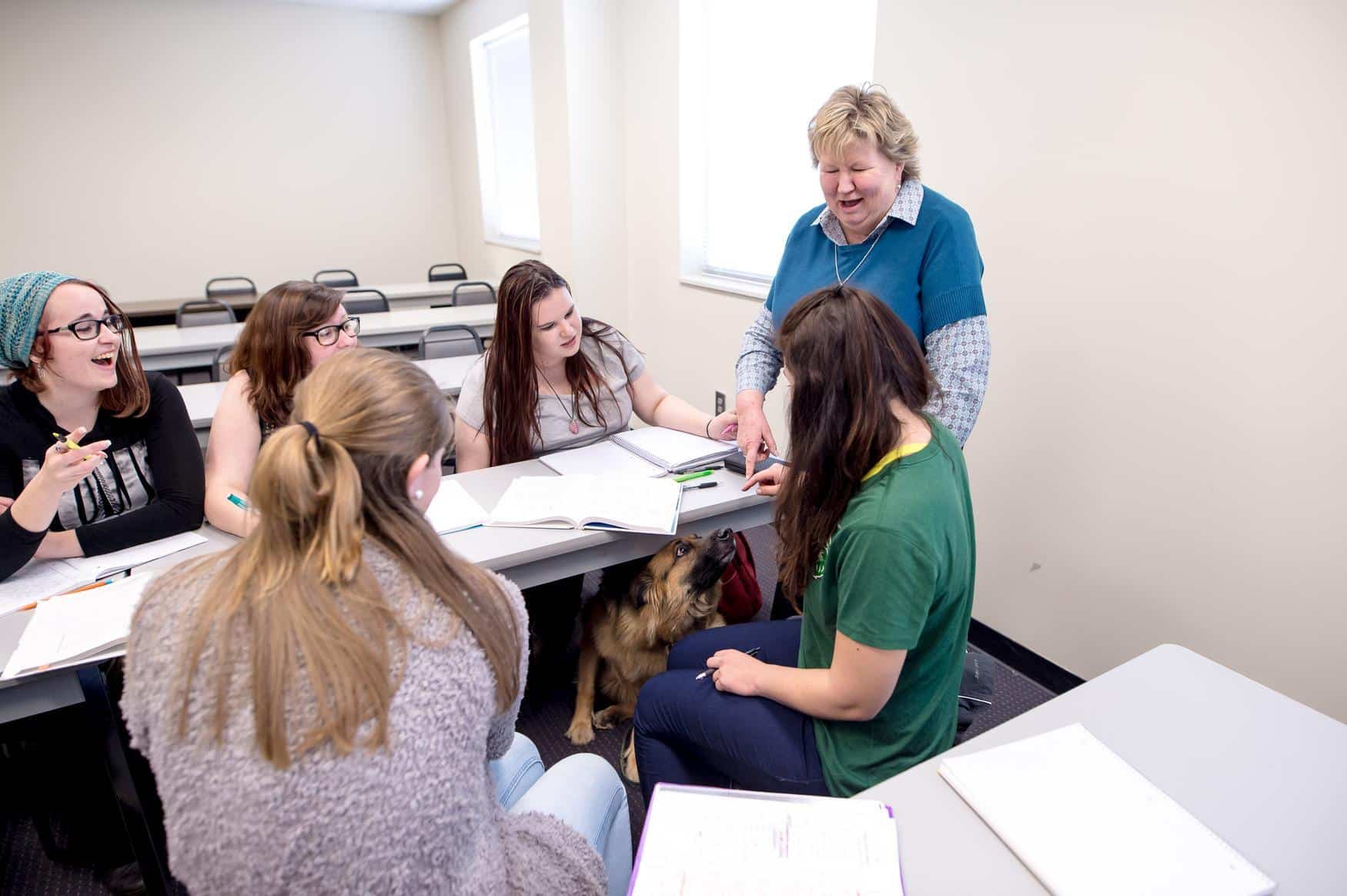English


Why Pursue English?
No matter how times change, there will always be a need for critical thinkers who know how to translate their thoughts into words, accumulate knowledge, and defend their viewpoints. That is why English majors will always find success and careers in the information economy – and at Piedmont University, we prepare our English majors for success in whatever they pursue next.
Our students complete a challenging, writing-intensive curriculum focused on the study of a wide range of literary texts from the classics to postmodernism, as well as courses in film, creative writing, and literary criticism. The result is a graduate with the skills required to meet the 21st century’s demands for critical and innovative thinking in the workplace. A major or minor in English also complements all other academic disciplines, especially business, mass communications, theater, music, and art, as well as prepares you for postgraduate studies in a wide range of subjects.

How a Piedmont English Degree Helps You
- Develop a love for literature that also demands critical thinking and the ability to write and defend your viewpoints.
- Take advantage of Piedmont’s travel study programs to participate in professional conferences and internships.
- Gain valuable professional experience and course credit as editors of Trillium, Piedmont University’s award-winning literary and arts journal.
- Use your English undergrad to pursue a postgraduate career in law, publishing, business, journalism, public relations, computer programming, advertising, ministry, and teaching, as well as graduate degrees in English and creative writing.
Career Opportunities
An English degree from Piedmont opens doors and a wide range of professional pursuits. For instance, our graduates have gone on to build successful careers in:
An English degree equips individuals with strong editing and analytical skills essential for evaluating manuscripts. Additionally, it fosters a deep understanding of narrative structure and audience engagement—crucial in shaping marketable content.
With training in research, writing, and critical thinking, English graduates are well-prepared to investigate and report stories clearly and compellingly. Their command of language also allows them to craft narratives that inform and resonate with readers.
Studying English hones the ability to construct logical arguments and interpret complex texts—skills fundamental to legal analysis. Furthermore, precision in writing and comprehension enhances performance in drafting briefs and understanding legislation.
An English background provides a keen eye for grammar, tone, and clarity, all vital in refining written materials. Editors benefit from the literary and rhetorical techniques studied in English programs, enabling thoughtful content shaping.
Clear communication is a cornerstone of business, and English majors excel in conveying ideas persuasively through writing and speaking. Moreover, their training in textual analysis translates well into interpreting data and crafting strategic messaging.
Although not a quantitative discipline, English develops the critical reasoning needed to evaluate economic arguments and policy narratives. It also strengthens the ability to articulate complex concepts in accessible language.
Creative storytelling, a hallmark of English studies, plays a major role in developing compelling ad campaigns. The degree also sharpens persuasive writing skills, allowing for effective messaging across various media.
An English degree fosters audience awareness and messaging precision, both essential for successful marketing strategies. Graduates can craft engaging content that aligns with brand voice and drives consumer response.
English majors bring a nuanced understanding of tone, audience, and clarity to the production of print and digital publications. Their skills in content development and editorial judgment support high-quality output.
A strong foundation in English literature and writing enhances creative expression and narrative innovation. Students also gain exposure to varied styles and techniques that enrich their own original works.
Though more structured than creative writing, technical writing benefits from an English major’s ability to explain complex ideas clearly. Their mastery of language and audience adaptation makes them excellent at producing user manuals, guides, and documentation.
A background in English cultivates research proficiency and information organization—core competencies in library science. It also nurtures a love for literature and literacy, central to fostering community learning.
More About English
Learn more about English and the variety of options available to you as a Piedmont student.
All students majoring in English must take 36 hours (12 courses) in English beyond the general education requirements. English majors may choose from two concentrations: literary studies, or creative writing. Students and their advisors will choose courses from five categories: 1) literary history, 2) literary genre, 3) reading and writing, 4) creative writing, and 5) major authors.
In addition to traditional classes devoted to major figures such as William Shakespeare and Toni Morrison, Piedmont students have in recent years had the opportunity to study ekphrastic writing in Paris, Madrid, and Rome, to roleplay the trial of Galileo, to delve into the films of Alfred Hitchcock, to analyze dystopian science fiction, and to examine cross-cultural representations of cannibalism.
Piedmont University and Mercer Law School have joined forces to provide the opportunity for Piedmont students to receive their Bachelor of Arts (BA) degree and juris doctor (JD) degree in six years. It’s called the 3+3. And many English majors find this an attractive route. That’s because study of the law and English share much in common, including the ability to read, interpret, and defend positions based upon your research.
Related Programs
Intrigued by English? You might also be interested in one of these programs:



Where do I start?
To begin your journey toward becoming an English student at Piedmont University, you can start by applying today! Or, schedule a campus visit and meet with admissions and financial aid advisors, as well as faculty members in the English department






